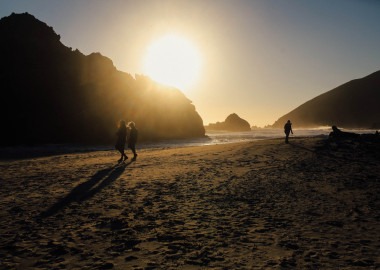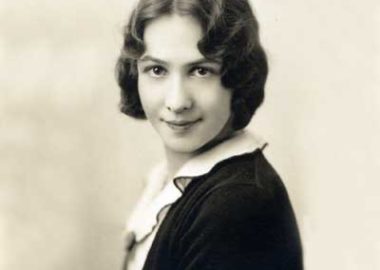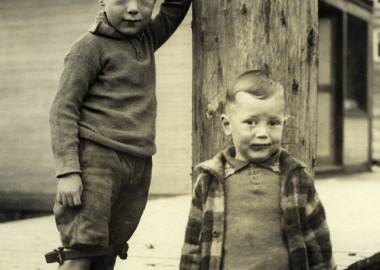 If you want quick proof I’m not normal, check this out: I recently read 141 books of Canadian nonfiction and I had a great time!
If you want quick proof I’m not normal, check this out: I recently read 141 books of Canadian nonfiction and I had a great time!
The books were entries in British Columbia’s National Award for Canadian Non-Fiction, a prize launched in 2005 to — well, I’ll let the award speak for itself:
to honour Canada’s finest writers of non-fiction and to celebrate a genre that stimulates our national conversation and shares knowledge about the complex world in which we live.
Noble stuff, eh? And I was lucky enough to sit on the jury to choose this year’s winner, which will be announced on January 26, 2017.
There’s a Library Inside My Brain
What’s it like to spend five months reading 141 books? First off, let’s just visualize that number. If every one of those were a Tall Starbucks Caramel Macchiato, that would be $627.45 (and 26,931 calories — enough for me to live on without other food for more than 10 days):
Overwhelming, right? The sheer weight of those books, 70-odd kilos’ worth. 30,000 pages, what, 10, 11, 12 million words? Just the breadth of subject matter — indigenous history to hockey arenas, birdwatching to battle memoirs, food to female sexuality — was amazing. The human capacity for curiosity (and the writer’s ability to discover, mine, and monetize virgin territory) was a delight to experience.
From 141 books, we narrowed it down to four. Three of the finalists will walk away with a cheque for $5,000 and — we jurors hope — many new readers. And one winner will get $40,000 and a moment on the gold podium of national attention. It’s exciting stuff.
Four Tips for Stronger Writing
“The greatest part of a writer’s time is spent in reading, in order to write; a man will turn over half a library to make one book” —Samuel Johnson
Digesting all those words has made me, I believe, a better thinker. And thinking more stringently has helped me form better sentences, which lead to clearer paragraphs, which marshal more compelling arguments. This is one of the functions of literature, after all, genre notwithstanding. To arrange one’s thoughts and opinions in response to the deep reflections of another — this week in particular, that seems a noble pursuit. The thousands of hours also reminded me of these principles. Maybe they’ll help you as well?
1. There’s nothing new under the sun
“If I had not existed, someone else would have written me, Hemingway, Dostoyevsky, all of us.” —William Faulkner
 I learned a Wikipedia’s worth of information reading all those words, but the books that gripped me most weren’t the most novel. Sometimes, a new writer can make an old subject shine fresh, as Taras Grescoe did in his majestic Shanghai Grand: Forbidden Love and International Intrigue on the Eve of the Second World War. I thought I knew a bit about the Japanese occupation of that most romantic of cities, for instance, but Grescoe — who’s made a career out of exploring hidden byways — lined up his facts in a delightfully new way, sparking aha moments where I expected mere familiarity.
I learned a Wikipedia’s worth of information reading all those words, but the books that gripped me most weren’t the most novel. Sometimes, a new writer can make an old subject shine fresh, as Taras Grescoe did in his majestic Shanghai Grand: Forbidden Love and International Intrigue on the Eve of the Second World War. I thought I knew a bit about the Japanese occupation of that most romantic of cities, for instance, but Grescoe — who’s made a career out of exploring hidden byways — lined up his facts in a delightfully new way, sparking aha moments where I expected mere familiarity.
Don’t be afraid to tell the story you know. But tell it as only you can.
2. Pressure makes diamonds
“I would advise anyone who aspires to a writing career that before developing his talent he would be wise to develop a thick hide.” —Harper Lee
 Alex Shimo originally travelled to the Ontario First Nation reserve of Kashechewan (near James Bay) to research a radio documentary about the community’s battle with E. coli. What she found instead was chaos: the reserve is gutted by not just poverty and poor infrastructure but colonialism and church-condoned sexual predation. What she did next makes her account extraordinary: she completely falls apart, and Invisible North: The Search for Answers on a Troubled Reserve becomes the document of her unravelling.
Alex Shimo originally travelled to the Ontario First Nation reserve of Kashechewan (near James Bay) to research a radio documentary about the community’s battle with E. coli. What she found instead was chaos: the reserve is gutted by not just poverty and poor infrastructure but colonialism and church-condoned sexual predation. What she did next makes her account extraordinary: she completely falls apart, and Invisible North: The Search for Answers on a Troubled Reserve becomes the document of her unravelling.
Find the story. Then find the real story. Demons and fear will confirm your path.
3. Write like no one is watching
“To gain your own voice, you have to forget about having it heard.” — Allen Ginsberg
 Robert Moor, a transplanted American of prodigious talent, has written a slender first book about the splendour of paths as they spool out in scales from minute (neuronal trackways) to massive (tectonic shiftings). On Trails: An Exploration is a glorious pathway of its own, meandering in places, bloody-mindedly efficient in others. There are profound questions — What is wisdom? What is wilderness? Freedom? Choice? — and a beautiful evocation of the walking life. I couldn’t put it down, not just because it was unexpected but because the prose was so damn lovely and he was unselfconscious in asking naive questions that yielded complex answers.
Robert Moor, a transplanted American of prodigious talent, has written a slender first book about the splendour of paths as they spool out in scales from minute (neuronal trackways) to massive (tectonic shiftings). On Trails: An Exploration is a glorious pathway of its own, meandering in places, bloody-mindedly efficient in others. There are profound questions — What is wisdom? What is wilderness? Freedom? Choice? — and a beautiful evocation of the walking life. I couldn’t put it down, not just because it was unexpected but because the prose was so damn lovely and he was unselfconscious in asking naive questions that yielded complex answers.
Beauty is important. And beauty, as we all know, is more than skin-deep. Courage is beautiful. Vulnerability is beautiful. The beginner’s mind is beautiful.
4. Have the courage of your convictions
“Literature is strewn with the wreckage of men who have minded beyond reason the opinions of others.”
—Virginia Woolf
 I’m grateful that not every one was a polemic, but there’s a delight in watching a smart writer get smarter over the course of a book. For the last few years, Sandra Martin’s “The Long Goodbye” column in the Globe and Mail has given her room to study how we die — and how we’re allowed to die. Her findings, collected and expanded upon in A Good Death: Making the Most of Our Final Choices, move her ever more firmly as the argument unfolds toward a conviction that legislation in Canada has to catch up to morality, and that each of us must be allowed to choose when and how we end our lives. The start of the book is even-handed; by the end, we’ve come to know her personal fears and low moments, and to heed the heart she wears on her sleeve.
I’m grateful that not every one was a polemic, but there’s a delight in watching a smart writer get smarter over the course of a book. For the last few years, Sandra Martin’s “The Long Goodbye” column in the Globe and Mail has given her room to study how we die — and how we’re allowed to die. Her findings, collected and expanded upon in A Good Death: Making the Most of Our Final Choices, move her ever more firmly as the argument unfolds toward a conviction that legislation in Canada has to catch up to morality, and that each of us must be allowed to choose when and how we end our lives. The start of the book is even-handed; by the end, we’ve come to know her personal fears and low moments, and to heed the heart she wears on her sleeve.
Bias and prejudice aren’t helpful. But a hard-won belief can change minds, and hence the world.
I hope this helps you as you do the hard work of writing simply, beautifully, and honestly. Courage!






